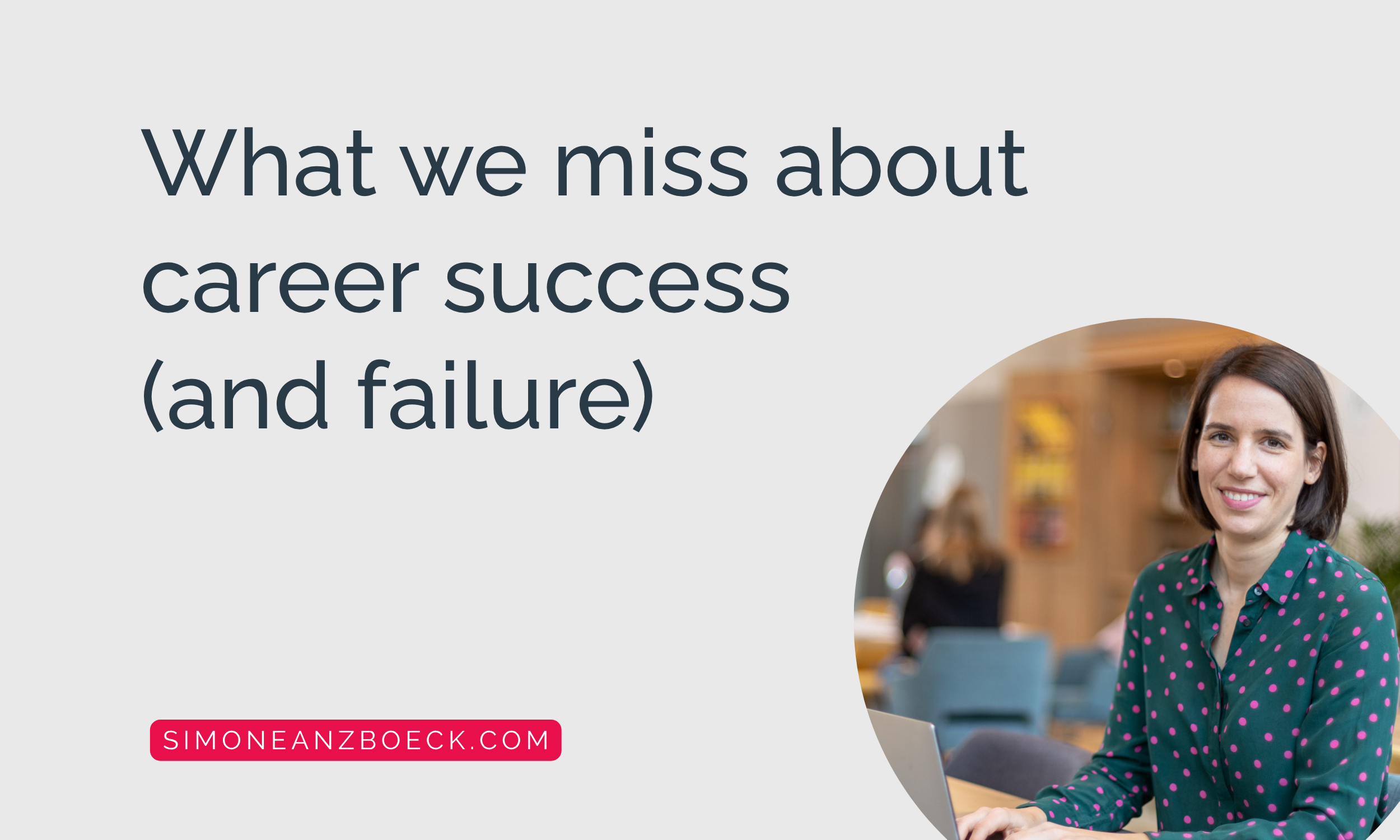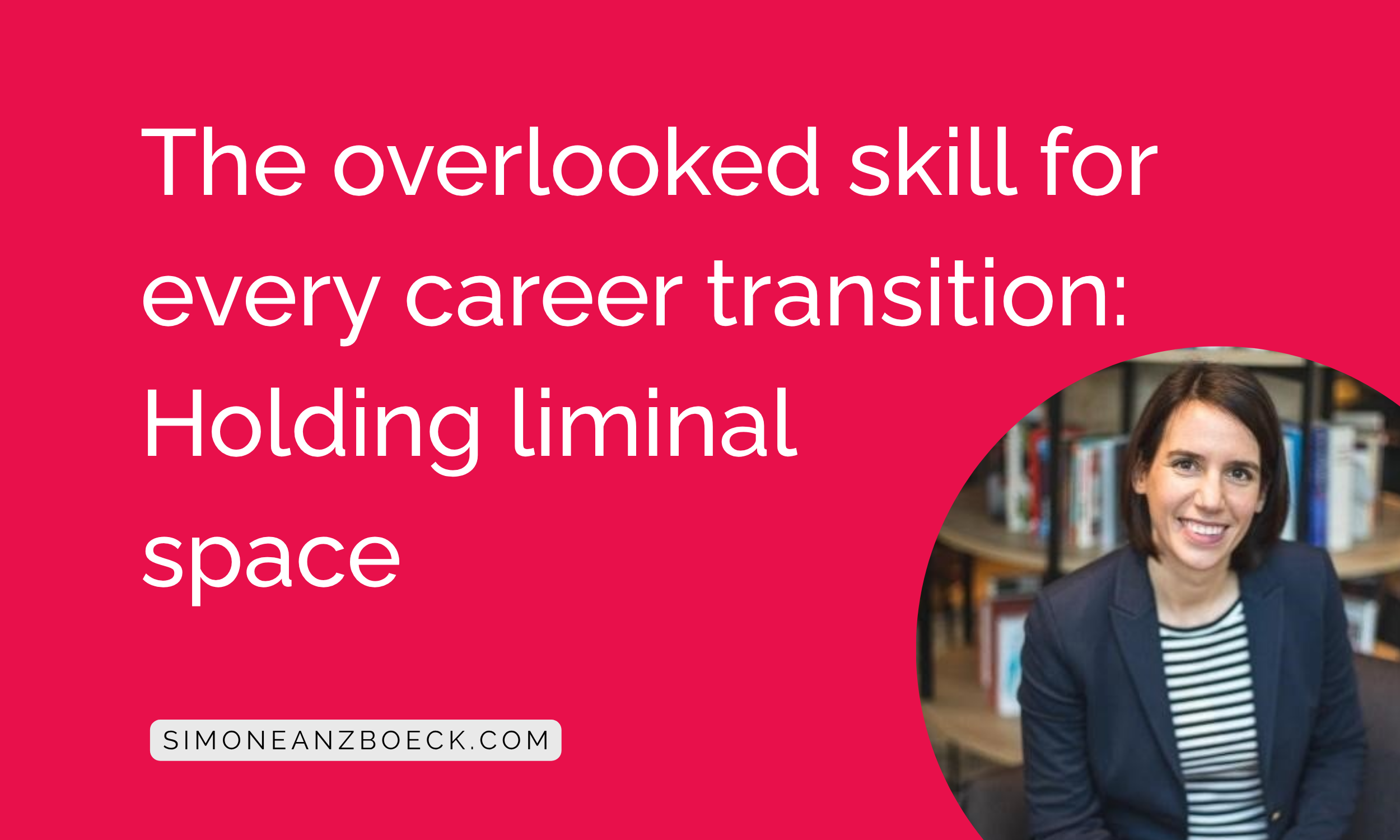Making time for long-term career goals that feel non-urgent
The tension between now and next - and how to move forward anyway.
In this article, I discuss what's required to prioritise your inkling of a career aspiration based on a client case study.
When your next career chapter isn't urgent.
You know that nagging thought in your head that keeps telling you to prioritise your new professional interests? Maybe you've been thinking of training in a new skill. Perhaps you want to change how you work (going from full-time to fractional)? Maybe you would love to work for yourself one day.
But between your current demanding job, the endless meetings, and caregiving responsibilities, that long-term dream often gets pushed to "later."
But here's the challenge:
The following professional chapter won't just appear. You have to find the time to prioritise it.
For many, this often means running a "two-track path" for some time, i.e. working your current job while building (or finding) the thing for later.
Client story: L's dream is to run her own business in 3 years.
When coaching goals change
After leaving her last job, my client L. wanted to be intentional about her next step. She came to coaching wanting to identify a new role and organisation she would enjoy working for and in, feeling proud and having a healthy work-life balance.
Initially, she thought she needed a new job that "fit better." That's what brought her to coaching.
After two months of deep work in coaching, a different desire emerged: a creative path, perhaps her own business. She wants to lean into her creative side. The idea formed to start her own creative business.
She thought through the plan: she needed to acquire the technical skills, define her business and build a financial runway. She mapped it out over 3 years.
That won't happen overnight. She needs a job while building her business.
The goal was clear. The plan for year 1 was clear: Find a new job & complete the technical training course she signed up for.
When life interrupts your long-term career goals
The challenge: her business dream is far away. With a six-year-old, a job hunt, and real responsibilities, progress on her business dream kept sliding to the bottom of the list.
The challenge: How to hold both timelines without getting overwhelmed.
So, together, my client and I worked through what would allow her to hold space for all things – her immediate job search priority, the business dream and her family obligations.
Four strategies to advance your long-term career goals
1. Break your plan into micro-steps
Develop your overall game plan towards your long-term goal with the knowledge you have at this moment.
But then, break down the plan into the smallest possible structure you can imagine.
Not just "complete the course," but: "There are 8 modules, each module has 8 hours of video lessons, and I'll need 4 extra study hours (making it 12 hours per module). I will make time for 4 hours per week of study to complete one module in 3 weeks."
Focus on the first micro-step in the big plan.
Your shift in mindset here: "Progress over completion" as a mantra.
2. Drop the to-do list and schedule, even if it's just 1%
"I will do this tomorrow".
How often have you said that?
Activities that are important but not important will inevitably always fall down the priority on a to-do list.
Building on the "progress over completion" mindset, your best friend is to create a schedule: Your week and day chunked into blocks of time for specific activities.
The idea is to set time aside to make progress (even if it's just 1%).
Your shift in mindset here: Long-term goals don't live on to-do lists. They live on your calendar.
You can read more about scheduling in this article: 4 reasons to use a schedule, not a to-do list (plus: how to build one)
3. Build in accountability and support
When the goal isn't urgent, shared commitment matters.
Ways to stay accountable include regular check-ins with your coach, a trusted friend, or an accountability buddy.
Your shift in mindset here: You don't have to go it alone. Build your support system.
4. Build your self-leadership skills.
Do you put your needs last (people-pleasing) and sacrifice your time to help everyone else?
Do you resist certain activities (e.g. networking) even though you know they are high-impact?
Do you have 50 browser tabs open, always thinking you need to do something else?
You can have the best system, but if you don't master the self-leadership skills, going will be tough.
Self-leadership = Influencing one's thoughts, behaviours, and motivations to achieve personal or professional goals.
Building self-leadership skills includes developing constructive thought patterns ("mental fitness"), regulating emotions and attention (presence, self-regulation) and developing self-reliance and self-belief (decision-making, trust, navigating uncertainty) – amongst other skills.
If you know that your self-leadership skills need upgrading, I'm here for you. Book a coaching discovery call.
What if progress feels slow? That's okay.
If progress towards your long-term goal feels slow, know that's perfectly normal.
Remember, progress isn't always fast, but with consistency, you get there. Small actions compound.
What's the long-term goal you keep putting off — but quietly long for?
And what's one thing from this article to bring you closer?
P.S: If you've already gained some momentum on your plan but feel motivation fading, you might be interested in this article: Why you feel stuck even with a plan: the neuroscience of motivation
Book a discovery call to discuss how coaching can support you. We’ll discuss your biggest challenge, what overcoming this might look like and if my coaching is a good fit - no strings attached.
More from the blog …











